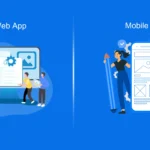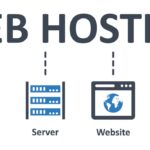Introduction
In today’s digitally driven marketplace, having an online presence is no longer optional it’s absolutely essential. Consumers expect seamless shopping experiences that are fast, secure, and tailored to their needs. If your business is still relying on a basic website template or a DIY platform, you’re likely missing out on major growth opportunities.
Partnering with a professional ecommerce development agency can unlock the full potential of your online store, driving sales, improving customer satisfaction, and future-proofing your digital presence. In this extensive 5,000+ word post, we’ll explore why investing in an ecommerce development agency is one of the smartest decisions you can make for your business today.
Understanding the Ecommerce Landscape
The Evolution of Online Shopping
Over the past decade, ecommerce has shifted from a convenience to a necessity. What began as simple catalog websites has evolved into omnichannel ecosystems where businesses integrate mobile apps, marketplaces, social commerce, and even augmented reality fitting rooms. Customers now expect product availability in real time, personalized recommendations based on browsing history, and frictionless checkout experiences.
As global ecommerce sales continue to soar projected to exceed $6.5 trillion by 2025 companies that fail to innovate risk being left behind by more agile competitors. Early movers in sectors like fashion, electronics, and beauty have set the bar high with features such as virtual try-ons, shoppable videos, and 24/7 AI-powered customer service.
The Rise of Mobile Commerce and Its Implications
Mobile commerce, or m-commerce, represents a rapidly growing segment of the ecommerce industry, now accounting for over 50% of total online traffic and nearly 45% of online sales worldwide. With smartphones becoming the primary device for online browsing and purchasing, ensuring a flawless mobile experience is paramount. Agencies understand mobile-first design principles, responsive layouts, and the importance of streamlined navigation.
They optimize page load speeds over cellular networks, simplify mobile checkouts with features like digital wallets and one-tap payments, and leverage progressive web apps (PWAs) to deliver near-native performance without the need for a dedicated mobile application. These optimizations not only improve user satisfaction but also positively impact search engine rankings, as Google continues to prioritize mobile-friendly websites in its algorithms.
Why DIY Solutions Fall Short
Many small- to medium-sized businesses are initially drawn to DIY website builders or out-of-the-box ecommerce platforms for their low cost and ease of use. While these solutions may be adequate for launching a simple storefront, they quickly reach their limits when custom functionality, sophisticated integrations, or advanced performance optimization are required. Without specialized technical expertise, DIY approaches can lead to:
- Slow Load Times: Pre-built themes and shared hosting environments often introduce performance bottlenecks.
- Security Vulnerabilities: Plugins or templates may have unpatched security exploits.
- Poor Mobile Responsiveness: Generic layouts can break or become cumbersome on smaller screens.
- Suboptimal Checkout Flows: Limited design flexibility results in confusing user journeys.
These factors frustrate customers and drive them to competitors whose sites offer a smoother, more engaging shopping experience. A professional ecommerce agency, by contrast, tailors every aspect of the site—front end, back end, and infrastructure—to meet your specific needs.
What an Ecommerce Development Agency Brings to the Table
Deep Technical Expertise
Ecommerce agencies employ teams of developers, UX/UI designers, project managers, and QA specialists who live and breathe online retail. They’re fluent in platforms such as Shopify, Magento, WooCommerce, and BigCommerce and they build custom platforms when off-the-shelf solutions aren’t enough.
Whether you need to integrate with a legacy ERP system, implement headless commerce architectures, or set up complex subscription billing, an agency has the coding skills and architectural know-how to deliver robust, scalable solutions.
Platform Specializations
- Shopify Plus: Ideal for high-growth merchants seeking a managed, SaaS-based solution.
- Magento Commerce: Suited for enterprise businesses requiring extensive customization.
- WooCommerce: A cost-effective WordPress plugin for smaller merchants.
- Custom Builds: Tailored solutions on frameworks like Laravel, Node.js, or Django.
Tailored User Experiences
One of the biggest differentiators between a generic store and a high-converting ecommerce site is the user experience. Agencies conduct thorough user research and data analysis to design customer journeys that guide shoppers from landing pages to checkout with minimal friction.
They implement:
- Personalized Product Recommendations: Driven by AI and machine learning.
- Advanced Filtering and Sorting: Helping customers find products quickly.
- Intuitive Navigation Menus: Based on customer usage patterns.
- Seamless Multi-Step Checkouts: Reducing cart abandonment.
A development agency fine-tunes every touchpoint based on real user behavior, heatmaps, session recordings, and A/B testing results.
Enhanced Security and Compliance
Data breaches and payment fraud are constant threats in ecommerce. Agencies implement enterprise-grade security measures, including SSL/TLS encryption, PCI-DSS compliance, and regular vulnerability scanning. They also stay current with evolving regulations such as GDPR in Europe, CCPA in California, and PIPEDA in Canada, ensuring your store respects consumer privacy and avoids costly fines.
Security practices include:
- Web Application Firewalls (WAFs): Protecting against common exploits.
- Two-Factor Authentication (2FA): For admin and user logins.
- Role-Based Access Control (RBAC): Limiting internal access.
- Regular Security Audits: Scanning for outdated libraries and frameworks.
A DIY approach might leave critical security patches uninstalled or misconfigure sensitive settings, but a professional team maintains rigorous standards to keep your business and customers safe.
Key Benefits of Partnering with an Agency
Accelerated Time to Market
Building a fully featured ecommerce site from scratch can take months, especially if your internal team is juggling multiple responsibilities. An agency accelerates the process by leveraging proven development frameworks, reusable code libraries, and agile workflows.
They establish clear milestones, perform continuous integration and testing, and deploy incremental updates so you start capturing online revenue sooner rather than later.
Scalability and Performance Optimization
As your business grows, so do your technical demands. Traffic spikes during seasonal promotions or flash sales can overwhelm under-resourced hosting setups, leading to crashes and lost sales. Agencies architect solutions with scalability in mind:
- Load-Balanced Environments: Distributing traffic across multiple servers.
- Content Delivery Networks (CDNs): Serving assets from edge locations.
- Database Sharding and Caching: Minimizing query load.
- Auto-Scaling Infrastructure: Dynamically adjusting server resources.
They also conduct performance audits to minimize page load times an essential factor given that even a one-second delay can reduce conversions by up to 7%.
Ongoing Support and Maintenance
Ecommerce development isn’t a one-and-done project. To stay competitive, you need continuous improvements: new marketing integrations, platform upgrades, bug fixes, and feature enhancements. A reliable agency provides:
- Dedicated Account Management: Single point of contact.
- Proactive Monitoring: Uptime, performance, and security.
- SLAs for Issue Resolution: Defined response and resolution times.
- Regular Platform Upgrades: Keeping dependencies and plugins current.
This ongoing partnership frees you from technical headaches and lets you focus on core business activities like product sourcing and customer engagement.
Comprehensive Service Offerings
Strategy and Consulting
Before any code is written, agencies collaborate with you to define clear objectives and key performance indicators (KPIs). Through workshops and discovery sessions, they uncover pain points, customer personas, and desired customer journeys. Outcomes include:
- Roadmaps with Features and Milestones: Aligned to revenue goals.
- Technical Requirements Documents (TRDs): Outlining system architecture.
- Competitive Analysis: Benchmarking against top industry players.
UX/UI Design and Branding
A visually appealing site is only half the equation. Agencies create custom, high-fidelity designs that reflect your brand identity while prioritizing usability. From color schemes and typography to micro-animations and interactive elements, every design choice is data-driven to enhance user engagement.
Key deliverables:
- Wireframes and Prototypes: Early-stage concepts.
- Design System Libraries: Ensuring consistency across pages.
- Accessibility Audits: Meeting WCAG 2.1 standards for inclusivity.
Platform Development and Customization
Whether you choose a hosted solution like Shopify Plus or require a fully custom build, agencies adapt to your needs. They deliver bespoke themes, specialized modules, and integrations with third-party systems such as ERPs (e.g., SAP, Oracle), CRMs (e.g., Salesforce, Zoho), and marketing automation platforms.
Custom solutions often include:
- Headless Commerce Architectures: Decoupling front end from back end.
- Subscription Management Systems: For recurring revenue models.
- Advanced Pricing Engines: Handling dynamic pricing rules.
Quality Assurance and Testing
Before launch, rigorous testing ensures your site performs flawlessly. Agencies conduct:
- Cross-Browser and Cross-Device Testing: Ensuring compatibility.
- Performance Stress Tests: Simulating high-traffic scenarios.
- Security Penetration Tests: Identifying vulnerabilities.
- User Acceptance Testing (UAT): Validating real-world usage.
Identified issues are addressed immediately to guarantee a smooth user experience.
Marketing Integrations
From foundational SEO practices like metadata optimization and structured data markup to advanced marketing automation workflows, agencies integrate systems such as:
- Email Marketing: Mailchimp, Klaviyo, HubSpot.
- Abandoned Cart Recovery: Automated reminder sequences.
- Loyalty Programs: Points-based rewards and VIP tiers.
- Analytics Dashboards: Google Analytics, Adobe Analytics.
These integrations help you attract, convert, and retain customers effectively.
Post-Launch Optimization
After launch, agencies monitor key metrics such as traffic sources, conversion rates, bounce rates, and average order value (AOV). They conduct A/B tests on landing pages, refine product page layouts, iterate on checkout flows, and deploy personalized promotions to continuously improve performance.
Real-World Case Studies
Case Study 1: Boutique Apparel Brand
A mid-sized fashion boutique was struggling with high cart abandonment rates on their DIY Shopify store. They partnered with an agency that:
- Redesigned the Checkout Flow: Implemented one-click purchases and social logins.
- Localized Payment Gateways: Supported multiple currencies and local wallets.
- Enhanced Product Discovery: AI-driven recommendations and personalized messaging.
Within three months of launch: conversion rates improved by 35%, returning customer rates increased by 20%, and average order value rose by 18%.
Case Study 2: Global Electronics Retailer
An established electronics retailer needed to migrate away from an outdated platform. The agency:
- Built a Headless Commerce Solution: Decoupled front end for faster performance.
- Integrated Third-Party Logistics (3PL): Automated real-time shipping quotes.
- Implemented a Dynamic Pricing Engine: Adjusting prices by region, currency, and customer segment.
Post-launch, the retailer expanded into five new markets, boosting cross-border sales by 120% in the first year and reducing cart abandonment by 25%.
Case Study 3: Subscription-Based Health Supplement Company
A health supplement startup wanted to shift from one-time purchases to a subscription model. The agency:
- Developed a Subscription Management System: Recurring billing, flexible delivery schedules.
- Automated Reminders: For expiring payment methods.
- Launched a Loyalty Program: Rewarding long-term subscribers.
After six months, subscription sign-ups accounted for 60% of total revenue, churn rates dropped below 5%, and lifetime customer value increased by 40%.
How to Choose the Right Ecommerce Development Agency
Assess Technical Competence
Evaluate each agency’s technical stack and certifications. Request code samples or case studies highlighting complex customizations similar to your requirements. A reputable agency welcomes transparency and provides references.
Evaluate Design and UX Capabilities
Review design portfolios and inquire about UX research methodologies. Agencies that conduct user interviews, heatmapping, and A/B testing consistently deliver superior experiences.
Consider Communication and Project Management Practices
Determine which collaboration tools (e.g., Jira, Trello) and update cadences (e.g., weekly calls, Slack channels) suit your workflow. Clear protocols prevent misunderstandings and keep the project on track.
Analyze Cost Structures and ROI Projections
Focus on long-term return on investment. Compare detailed proposals outlining deliverables, timelines, and payment milestones to make informed decisions.
Verify Long-Term Support Options
Ensure the agency offers post-launch support contracts with SLAs, routine maintenance schedules, and options for scaling development teams as your business evolves.
Best Practices for Maximizing Your Agency Partnership
Define Clear Objectives and KPIs
Document goals such as launch dates, revenue targets, conversion rate improvements, and feature requirements. Clear objectives enable the agency to align technical solutions with your business strategy.
Foster Cross-Functional Collaboration
Engage marketing, customer service, and IT teams throughout development to ensure alignment on SEO, user feedback, and infrastructure integration.
Leverage Data and Analytics
Share comprehensive analytics dashboards tracking traffic sources, user behavior, cart abandonment reasons, and revenue per visitor. Use these insights to guide iterative enhancements.
Embrace Agile Development Methodologies
Implement Scrum or Kanban for rapid iterations and continuous feedback loops. Break work into sprints, deliver incremental value quickly, and adapt to evolving requirements.
Invest in Training and Documentation
Require thorough documentation on architecture, deployment pipelines, and troubleshooting procedures. Schedule training sessions for your team to manage content updates, fulfill orders, and monitor site health.
Common Misconceptions Debunked
“I Can’t Afford an Agency”
Upfront costs may seem high, but long-term benefits—such as increased sales, reduced manual workload, and ongoing technical support—justify the investment. Many agencies offer phased plans or retainers to spread costs.
“DIY Tools Are Good Enough”
While suitable for hobby projects, DIY solutions rarely scale to meet growing business demands. Custom integrations, complex shipping rules, and advanced marketing automation require professional expertise.
“Once the Site Is Live, the Work Is Done”
Ecommerce is an ongoing journey. Continuous updates for security, performance, design, and features are essential to remain competitive. Without expert support, your site may lag behind industry standards.
Future-Proofing Your Ecommerce Strategy
Embracing Omnichannel Commerce
Build unified back-end systems to manage inventory, orders, and customer data across web, mobile, marketplaces, social media, and physical stores. Enable features like buy-online-pick-up-in-store (BOPIS) and seamless returns.
Integrating Emerging Technologies
Pilot AI chatbots, augmented reality fitting rooms, and interactive 3D product views to differentiate your brand and enhance engagement.
Optimizing for Voice and Visual Search
Implement structured data markup and integrate visual search APIs to capture traffic from voice assistants and image-based shopping.
Preparing for International Expansion
Plan for localization, currency conversion, tax compliance, and cross-border logistics. Partner with agencies experienced in global ecommerce to navigate complex regulatory landscapes.
Frequently Asked Questions (FAQ)
Q1: How long does it take to build a custom ecommerce site?
A: Timelines vary based on complexity, but typical custom builds range from 12 to 24 weeks, including discovery, design, development, testing, and launch phases.
Q2: What is headless commerce, and do I need it?
A: Headless commerce decouples the front end from the back end, allowing greater flexibility in delivering content across channels. It’s ideal for brands seeking unique experiences or omnichannel consistency.
Q3: Can I migrate my existing store to a new platform?
A: Yes. Agencies handle data migration—products, customers, orders, reviews—ensuring minimal downtime and preserving SEO equity.
Q4: What ongoing costs should I expect after launch?
A: Expect hosting fees, platform subscription costs (if applicable), maintenance retainers, and expenses for new feature development or third-party integrations.
Q5: How do I measure success post-launch?
A: Track KPIs such as conversion rate, average order value, customer acquisition cost, lifetime value, and cart abandonment rate. Regularly review analytics and adjust tactics accordingly.
Conclusion
Investing in an ecommerce development agency is not merely an option it’s a strategic imperative for businesses that aim to thrive in the competitive online marketplace. By leveraging their technical expertise, design acumen, and ongoing support capabilities, you unlock higher conversion rates, stronger security, seamless scalability, and future-ready innovations.
Rather than settling for generic templates or piecemeal DIY solutions, partnering with a specialized agency ensures your brand delivers exceptional shopping experiences that drive revenue and loyalty. If you’re ready to elevate your ecommerce presence and position your business for long-term success, now is the time to enlist the experts who can turn your vision into reality.




